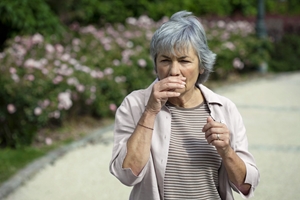
We're already a few weeks into fall allergy season and people are already feeling its effects. More than 20 percent of Americans suffer from ragweed allergies, the most common allergen in autumn, and many others suffer from mold spores.
While we all have our strategies to handle allergies, seniors must often take a much different, more careful approach. Many elderly people not only have to manage them, they have to do so while dealing with chronic diseases, respiratory problems or cardiovascular issues. This can make management much more difficult.
In the final part of our two-part series, we explore a few more ways to help seniors better manage allergies:
- Be aggressive: Don't wait to treat allergies. Be aggressive. Suggest that the senior visit the doctor immediately. Waiting to take care of them could have long-term ramifications on a senior's health. For example, if they have a pre-existing cardiovascular problem, a stuffy nose or irritated throat two issues younger people can usually handle with little problem can be serious for seniors.
- Stay alert about new treatments: Seniors may not be able to take medicines that younger people normally take. Make sure to talk to a doctor prior to administering over-the-counter drugs. A more appropriate medicine may be available instead.
- Understand how allergens work: All pollen allergies are more likely to appear during peak hours of the day between 9 am and 3 pm. To avoid ragweed, stay inside during these hours of the day. Mold allergies are most likely to appear during the evening and night when temperatures drop and conditions are more likely to be wet.
For more information on proper allergy management techniques and allergy control products, visit Allergy Be Gone today.









